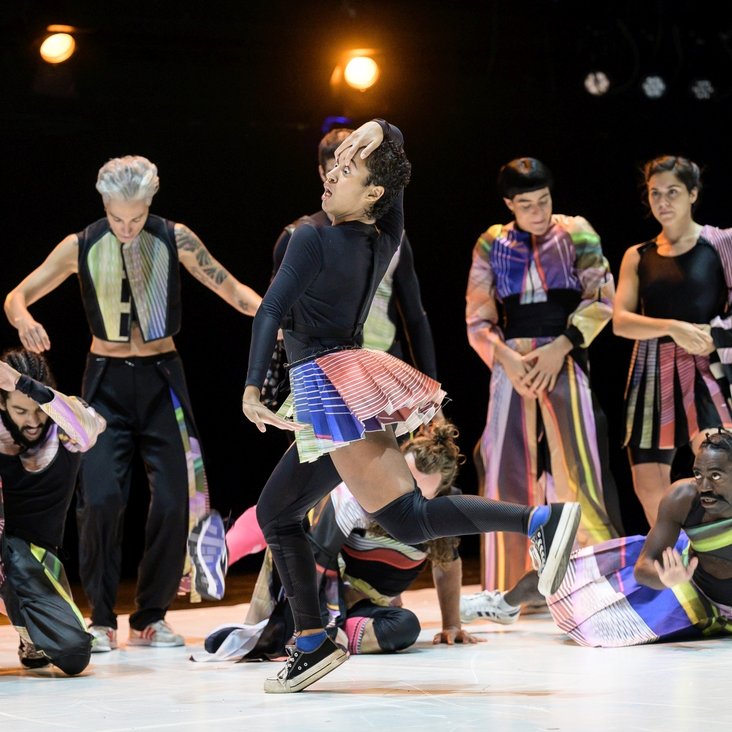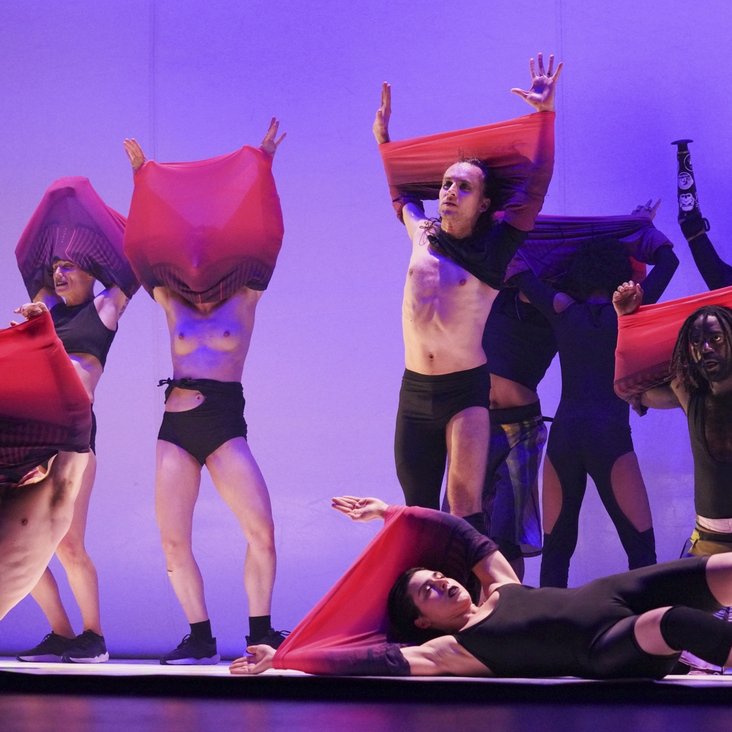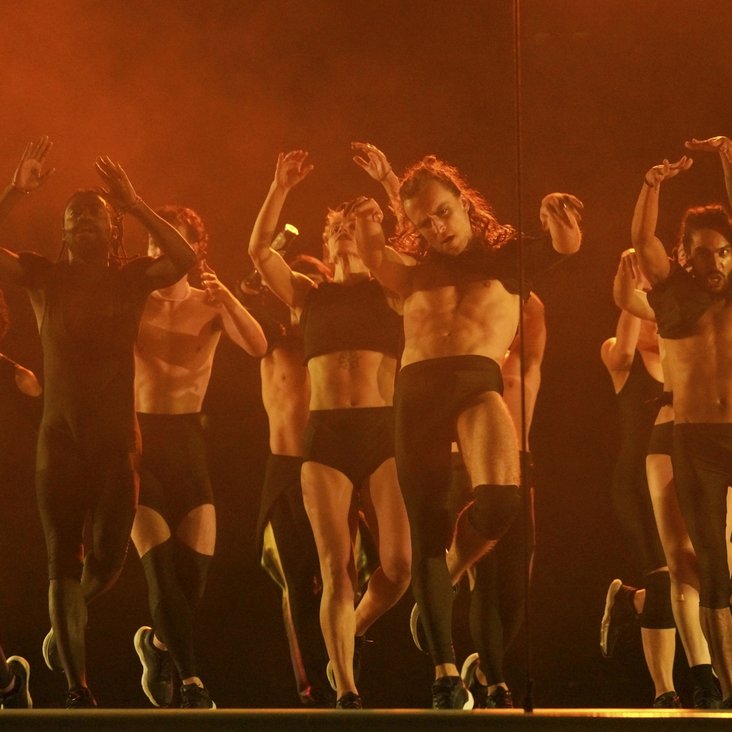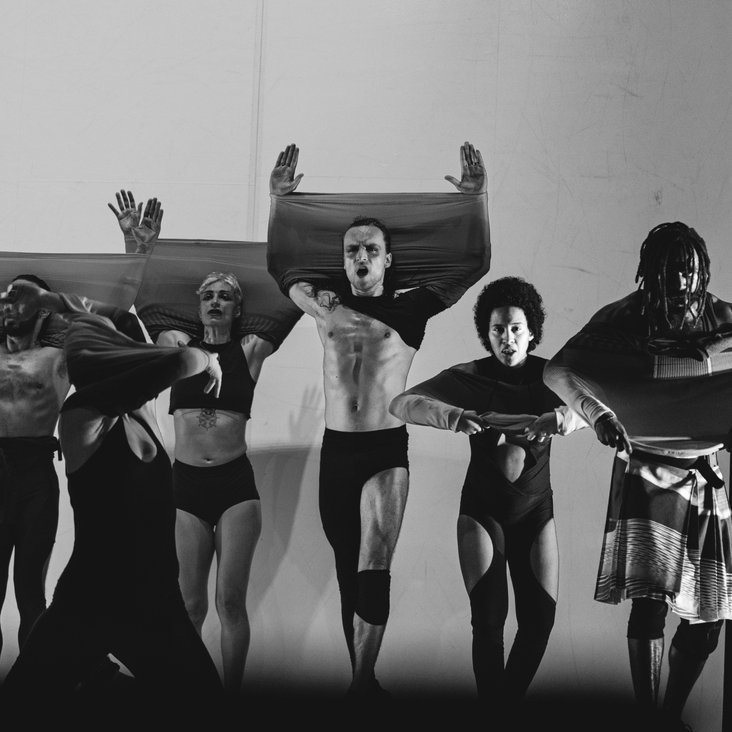Description
How does community come about, how does a collective memory arise from individual memories? This is what the Portuguese artist Marco da Silva Ferreira explores in CARCAÇA. Wearing sneakers, the dancers employ a rapid, compact style of footwork that recalls house and street dance. This cool, rapid-fire movement is repeatedly blended with the traditions signaled by the individual dancers’ bodies – proud Portuguese folklore, the earthiness of African dances, the American moonwalk of the ‘80s. What remains from the past, and how does it transform solitary individuals into a synchronized group? CARCAÇA examines whether dance can absorb and integrate new movements that may have originated on the street, or whether it must break with an authoritarian past to do so. Should one preserve one’s heritage or break away from it? Does democracy become hollow when identity is determined by an authority rather than emerging from the people? The ensemble loudly sings a workers’ song, “All Walls Fall” appears in neon writing on the wall, and clothes mutate into posters, shields and open mouths. The dancers even question the very ground they stand on. CARCAÇA attempts to connect the past and the present through dance – the word means “carcass” or “wreck” but it also refers to the frame upon which something new might be erected. Marco da Silva Ferreira was discovered by Hofesh Shechter; he is a choreographer who challenges his dancers with a high-intensity, movement-rich style and his viewers with socially critical themes.
With live music
Duration: approx. 75 minutes no intermission
Age guidance: from 12 years
The work has catapulted Ferreira, who comes from a street dance background himself, into the international premier league of the contemporary dance scene. Eight virtuoso dancers amalgamate the forces of the past into an unreal future. — Berliner Zeitung
Choreography that is breathtaking in the truest sense of the word. — Kronen Zeitung
Marco da Silva Ferreira is at his strongest in dance, in the orchestration of dynamic bodies of different genders, generations, and backgrounds. — Der Standard
The Portuguese artist makes it very clear that he is not serving up some cheap folklore show here. He knows exactly what he is doing: “The dances in ‘Carcaça’ reflect the reality of the communities: the people, their desires, their fears.” — Der Standard



